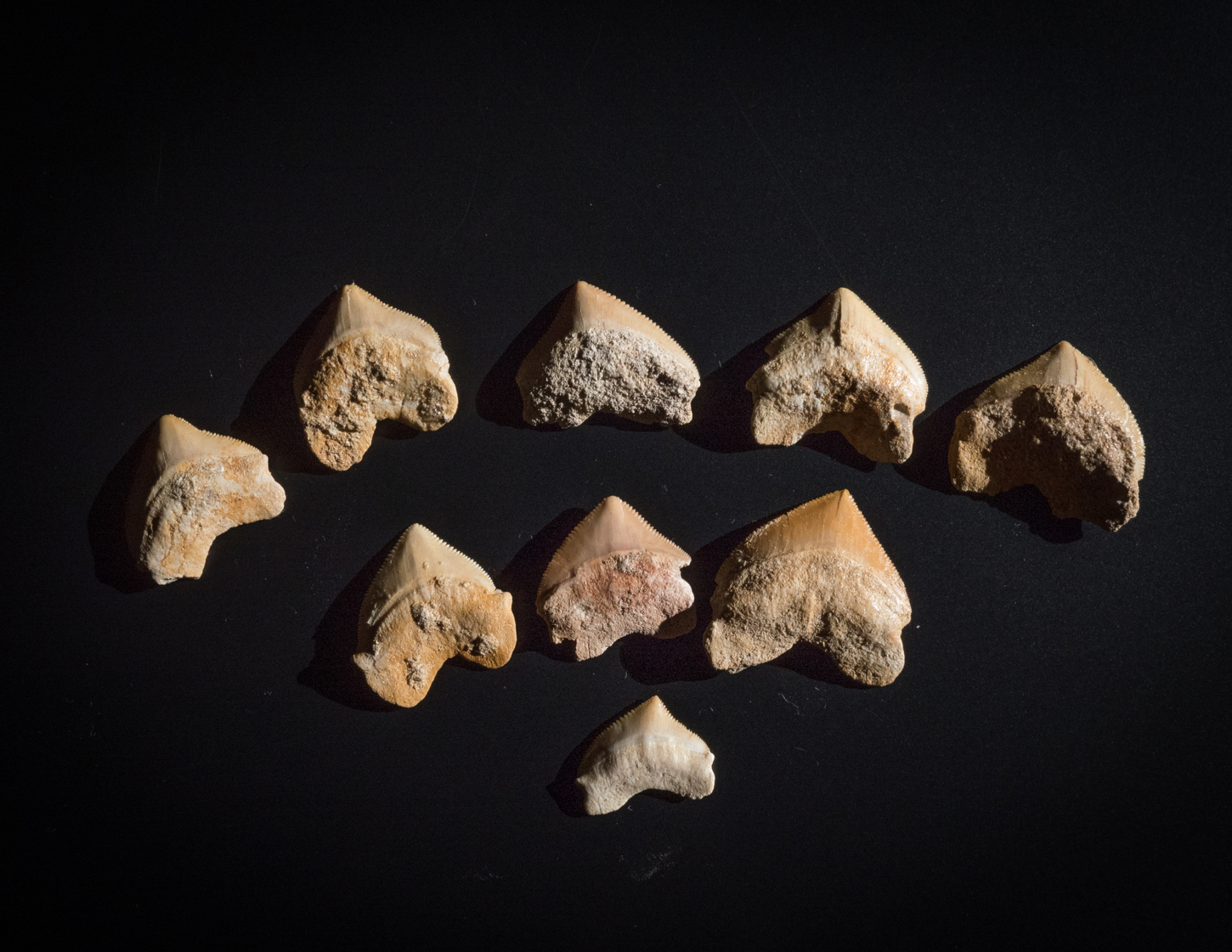Along with the loss of threequarters of the world’s plant and animal species, including the dinosaurs, the great Cretaceous–Tertiary extinction about 66 million years ago also changed the shape of shark teeth left in the fossil record.
A new study by University of New England (UNE) palaeontologist Dr Nicolas Campione and his colleagues from Sweden's Uppsala University, published this week in Current Biology, examines how these ancient teeth tell the story of how sharks survived the extinction by adapting to the radically changed post-Cretaceous marine environment.
"We think the dominant sharks of the Cretaceous, the mackerel sharks (Lamniformes), were relatively big and reliant on a diet of marine reptiles and ancient squid," Nicolas said. "When these animals went extinct, so did many of the mackerel sharks. Without the apex predators, there was a resurgence in bony fishes, which seems to have facilitated the rise in the ground sharks."
Ground sharks are today the dominant form of these ancient cartilaginous animals.
The discovery does not augur well for future shark diversity. "It shows that large sharks, and especially those reliant on specific food, are not necessarily going to cope as environments change," Nicolas said. "Sharks that feed on a variety of things will probably be able to adapt; the more specialised species may not."
By studying the morphology of shark teeth, the scientists can not only gain an insight into the lives of extinct sharks and what they ate. "In understanding the mechanisms that have shaped their evolution and diversity in the past, perhaps we can also provide some insights into how to mitigate against future shark losses," Nicolas said.
About half the world's sharks are considered to be either endangered, threatened or near-threatened. Today's mackerel sharks (Lamniformes) include the great white and mako sharks, while the ground sharks (Carcharhiniformes) include the tiger, hammerhead and blacktip reef sharks.
While the research highlights the incredible resilience of sharks, it also underlines the vulnerability of our marine ecosystems. "Sharks are the only big marine animals that survived this mass extinction event," Nicolas said.
"But this research clearly demonstrates that when you remove certain parts of the food web, that has a trickle-down effect. Similarly, losing sharks from the Great Barrier Reef today would have a big impact on their prey, and all sorts of other repercussions."


